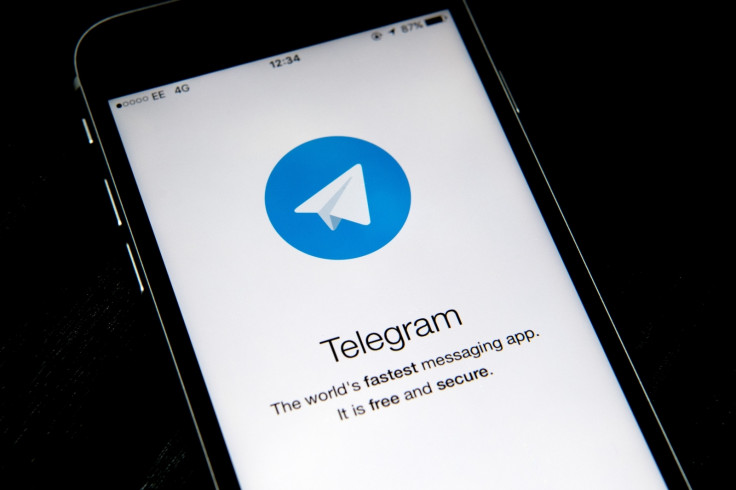Iraq's decision to block Telegram met with mixed reactions
Iraq's telecoms ministry attributed its decision to block Telegram to national security concerns.

Iraq has blocked the Telegram messaging app citing security concerns. The country's telecoms ministry recently decided to block the popular messaging app as a response to concerns over personal data violations and national security.
The ministry claims the app does not handle users' data well, further claiming it blocked Telegram to preserve the "integrity of users' personal data." In April, Italy became the first Western nation to impose a similar ban on ChatGPT amidst concerns over privacy issues.
Notably, Telegram is a widely popular social chat app that also serves as a news source. According to a Reuters report, the ministry believes some channels have large personal data such as addresses and family ties of Iraqis.
#Iraq banned Telegram, a messaging and social media app, for security and privacy reasons. The app leaked data and was used by terrorists. Telegram did not cooperate with Iraq. Some users criticized the ban as unfair.#TrendingPakistan #Telegram #Ban #Security #Privacy #Freedom pic.twitter.com/6XjFUKStHZ
— Trending Pakistan (@ItsTrendingPAK) August 6, 2023
Reportedly, the ministry asked Telegram to shut down "platforms that leak the data of the official state institutions and the personal data of citizens... but the company did not respond and did not interact with any of these requests," according to the statement.
"The Ministry of Communications affirms its respect for citizens' rights to freedom of expression and communication, without prejudice to the security of the state and its institutions."
Does Telegram store user data?
On August 6, the telecoms ministry announced that it has blocked Telegram. Apparently, the Iraqi government is concerned about personal data violations through the app. Like most chat apps, Telegram not only collects but also stores user data such as names, phone numbers, and locations.
The government claims the privacy and security of its citizens will be in jeopardy if unauthorised individuals get their hands on this data. Aside from personal data violations, Telegram has sparked national security concerns.
Iraq blocks Telegram app citing ‘personal data violations’ #News #Latestnews pic.twitter.com/hbAQ44yqVu
— Nationlogy (@nationlogy) August 7, 2023
According to the Iraqi government, the app's encryption features restrict authorities from monitoring and tracking potential threats. That is why Russia threatened to ban the Telegram app back in 2017 unless the developers gave the source code to the government.
Telegram's response
Telegram assured that the user data on its app are very safe and do not pose a risk to users. Furthermore, the company says no one can access the information on its app apart from the parties involved.
Also, Telegram says it is willing to go into talks with the Iraqi government in a bid to restore its services. It urged the app users to remain calm, stating that it will spare no effort to talk with the government.
"Please remain calm, all user data are very safe and we will do all we can to return our services. We are in talks with the government," Telegram said. Iraq's decision to ban Telegram has been met with mixed reactions.
Unsurprisingly, a considerable number of users have expressed frustration and disappointment. However, some users claim the move was a necessary step to protect national security and combat terrorism.
Iraqi tech expert and founder of e-commerce startup Miswag and social media app Nabd, Wael Abdulal, criticised the ban. According to Abdulal, the ban "will be a bad impact on brands and people who rely on the app for communication."
Another Iraqi tech expert and founder of the social media platform Hayatech and mobile app Tech Hub, Omar Alshaikhli, also raised concerns over the ban, according to a GizChina report. Alshaikhli says the ban will "limit freedom of expression and could lead to the use of less secure chat apps."
In contrast, Iraqi security expert and the head of research at the Al-Bayan Center for Planning and Studies, Ali Al-Mawlawi, defended the ban. According to him, the ban is a "good move to tackle terrorism and protect national security."
Impact of the ban
Iraq's decision to ban the Telegram app will have a major impact on citizens, as well as the digital landscape in the country. It is worth noting that Telegram is a widely used chat app in Iraq. So, the ban will restrict people, brands, and organisations from connecting and exchanging data.
Moreover, the people in Iraq have been using Telegram to share ideas and have open discussions. So, the ban raises concerns about freedom of expression and access to info. Several brands and entrepreneurs use Telegram for marketing, e-commerce, and providing customer support.
The absence of this platform could stop them from reaching users and conducting business. In other words, the ban may have a significant impact on the country's digital economy. Eventually, users may switch to other Telegram-like apps, which are less secure and have little regulation.
© Copyright IBTimes 2025. All rights reserved.






















